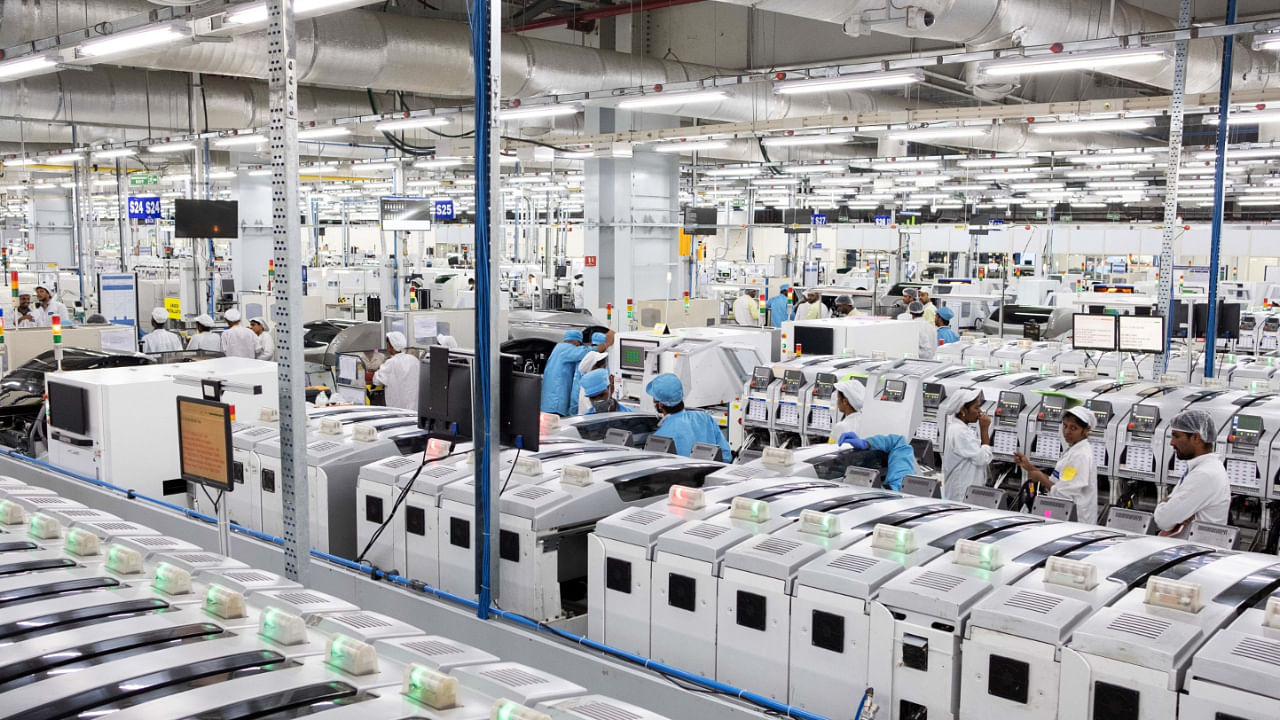
By Tim Culpan
The project is fantastical: A $19 billion investment into semiconductor and display-panel sectors, with the creation of 1,00,000 jobs in a state with little experience in technology manufacturing.
If voters and taxpayers in India’s northwestern Gujarat state are excited about this “landmark investment” they ought to read up on recent Wisconsin history. The US state bought into a similar pipe dream in 2017 when then-President Donald Trump teamed up with then-Governor Scott Walker to lure Foxconn Technology Group, whose Taipei-listed flagship is Hon Hai Precision Industry Co. The Taiwanese company said it would invest $10 billion and hire 13,000 workers.
Wisconsin never hit its targets. And neither will Gujarat.
What’s playing out today in India is eerily similar to what happened in the US Midwest five years ago, but this time the people and government of Gujarat have no excuse for not being aware of what’s likely to unravel. Americans were told clearly that the project in Mount Pleasant didn’t make sense. But still, they went ahead.
It’s inconceivable that Foxconn truly thought it would spend as much as $10 billion to build a high-tech manufacturing plant in the middle of US farm country. But, as founder and Chairman Terry Gou said early on in the planning phase: “There is such a plan, but it is not a promise. It is a wish.”
So when Vedanta Ltd chairman Anil Agarwal says his company will invest 1.54 trillion rupees ($19.4 billion), we ought to take it as wishful thinking, rather than a promise. And we can also pause to bathe in the sweet irony of his chosen venture partner: Foxconn, the same name behind the Wisconsin project. Though, to be fair, the Taiwanese are less a driving force behind this India project and more a consulting partner. The numbers, choice of location, and project scope are mostly decided by Vedanta, which is bearing most of the financial burden.
Foxconn made various pledges in Wisconsin that never came to fruition, with a promise for a state-of-the-art 10G liquid-crystal-display panel factory being the most egregious. At least it never committed to assembling iPhones, the product for which Foxconn is most famous.
The Taiwanese company’s perfidiousness was in some respects spurred by local and national governments intent on selling to their voters (and taxpayers) the assurance that a $3 billion incentives package — the largest in US history — would be worth the expense. It will be the “Eighth Wonder of the The World,” Trump proclaimed at the groundbreaking ceremony in 2018.
Governments from Washington to New Delhi don’t want to offer corporate welfare to lure hum-drum projects like chip-testing and assembly. They want to send press releases and tweets that hail their territory’s move into the upper echelons of industrial society. To meet that PR goal, they often tie incentives not to reasonable evolutionary steps in economic development, but to extravagant plans that people never dreamed of.
And the recipients of such sweeteners are more than happy to oblige, safe in the knowledge that there’s almost no downside in overpromising and under-delivering. And those who doled them out — either long gone from office, or safely entrenched — won’t be required to foot the bill either. Scott Walker lost his re-election bid, in large part because of the failure of the Foxconn deal; however, he didn’t lose his home like dozens of Wisconsinites who were displaced to make way for the “wonder” that never was.
Now it’s India’s turn to dream, until such time comes that it must face reality.
Perhaps it’s a coincidence that the project went to the home state of Prime Minister Narendra Modi. Neighboring Maharashtra state thought it was a shoe-in for the deal, going so far as to issue a statement two months ago announcing that the Vedanta-Foxconn venture would invest there.
Accusations and rancor were flying thick and fast in Maharashtra after Agarwal and Modi took to the stage to celebrate the winner. But in reality, the people of India’s second most-populous state may end up celebrating not that they lost the project, but that they dodged a bullet.
Indians — in Gujarat and Maharashtra in particular — can take this as a warning: You don’t want to be another Wisconsin.